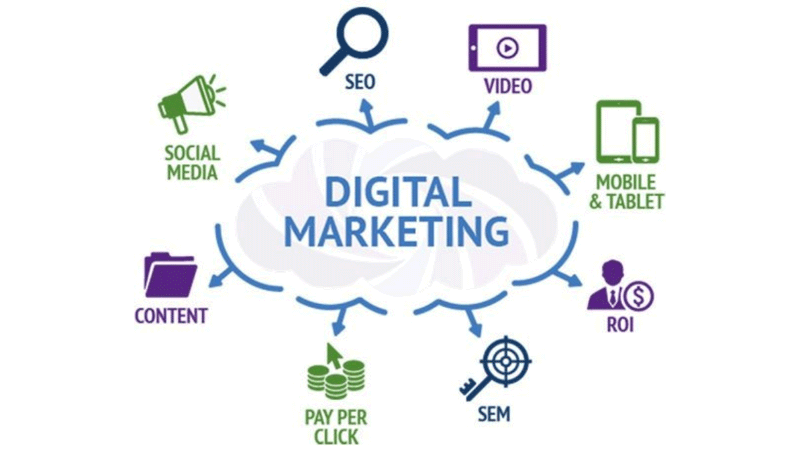As we move further into 2024, digital marketing continues to be a vital part of any business strategy. With the rapid advancement of technology and changing consumer behavior, businesses need to adopt effective digital marketing strategies to stay competitive. In this blog, we will explore why digital marketing is crucial for business success and how it can help you reach a broader audience, generate more leads, and increase sales.
Marketing is no longer about the stuff that you make, but the stories you tell.
Seth Godin, Author & Marketing Expert
1. Wider Reach and Global Access
One of the greatest advantages of digital marketing is its ability to connect you with a global audience. Unlike traditional marketing, digital platforms enable you to target customers worldwide. Whether you’re running ads on Google, Facebook, or Instagram, or even focusing on SEO and content marketing, your reach extends far beyond local boundaries. This wider reach allows businesses, even small startups, to compete on a global stage.
2. Targeted Advertising for Better ROI
Gone are the days of generic ads that reach a random audience. With digital marketing, businesses can create highly targeted campaigns that focus on the specific needs, interests, and behaviors of their audience. Using tools like Google Ads, Facebook Ads, and even email marketing, businesses can reach the right audience at the right time, ensuring better returns on investment (ROI) and more conversions.
3. Improved Customer Engagement
Customer engagement is more than just making a sale; it’s about building relationships. Social media platforms like Facebook, Instagram, LinkedIn, and Twitter allow brands to interact with their customers in real-time, answer questions, and resolve issues instantly. This builds trust and fosters long-term customer loyalty. A good digital marketing strategy focuses on keeping the conversation going, not just pushing products.
4. Cost-Effective Marketing Solutions
For businesses with limited marketing budgets, digital marketing offers a cost-effective solution. Traditional marketing methods like TV ads, print, and radio can be expensive and may not yield a direct, measurable return. In contrast, digital marketing allows businesses to set their budgets, monitor their spending, and track campaign performance in real time. Whether you’re investing in paid search ads, content creation, or SEO, digital marketing ensures you’re spending money wisely.
5. Data-Driven Decisions
One of the greatest advantages of digital marketing is the ability to gather and analyze data in real time. Tools like Google Analytics, social media insights, and email marketing platforms provide detailed information on customer behavior, campaign performance, and sales trends. This allows businesses to make data-driven decisions and adjust their strategies for maximum impact. With constant access to performance metrics, businesses can continuously optimize their campaigns to improve results.
6. Better Conversion Rates
By focusing on targeted, personalized content and ads, digital marketing is designed to guide potential customers through the entire sales funnel—from awareness to decision-making. Whether through an engaging social media post or a tailored email campaign, businesses can drive customers to take action, resulting in higher conversion rates. Conversion rate optimization (CRO) strategies can help ensure that your digital campaigns are not only attracting visitors but also turning them into paying customers.

